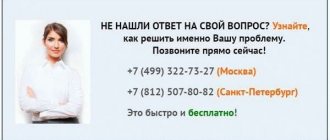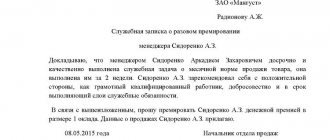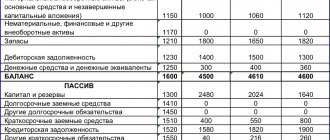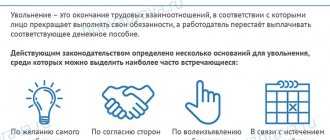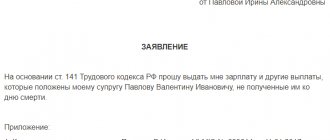While working in the organization, employees are rewarded for a number of indicators.
They can receive bonuses monthly, quarterly, or even annually. But if an employee quits, not all employers pay the required remuneration, and sometimes this refusal is legal. Due to the ambiguity of the issue, conflict situations arise, and sometimes it even comes to litigation. Legislative norms that you need to know in order to avoid violations of the Labor Code help you determine whether bonuses are mandatory.
General issues of bonuses for resigning employees
Forms of remuneration in an organization, the system of this payment (SOT) can include not only payments for the performance of their duties by employees, but also be of an incentive, bonus nature. The payment of bonuses is regulated by all-Russian legislation and local regulations relating to labor relations (LRA).
The Labor Code does not consider bonus issues in detail, indicating only that in the event of controversial situations, the employer must pay the employee an undisputed amount. To avoid problematic issues, bonuses and their payment are described in detail in the organization’s regulatory documents. The procedure for calculating and paying bonuses in the organization is prescribed:
- in a collective agreement;
- in the employment contract (agreement) with the employee;
- in the Regulations on remuneration;
- in orders and regulations on individual bonuses for individual employees.
It is advisable to reflect the bonus payment procedure in the individual agreement of the parties, while at the same time specifying detailed conditions for such payments in the collective agreement or Regulations.
All bonus amounts due to the employee according to regulatory documents must be paid upon his dismissal. The amounts of accrued bonuses are included in the amount of dismissal payments (for example, compensation for unused vacation), in accordance with the current government Decree No. 922 of 12/24/07 on average earnings. According to Federal Law No. 272 and subsequent clarifications of the Ministry of Labor (see Letter No. 14-1/B-800 dated 08/23/16), payment of bonuses must be completed no later than the 15th day after the period for which it was accrued, and LNA must contain appropriate wording regarding deadlines.
How to arrange payment of a bonus to an employee after his dismissal ?
Judicial practice regarding bonuses after dismissal
When deciding on the payment of bonuses to resigned employees, the courts recognize the failure to pay bonuses established by the remuneration system for the period worked in the absence of compelling grounds for deprivation of bonuses as a violation of the rights of employees. Such decisions are recorded, for example:
- in the appeal ruling of the St. Petersburg City Court dated January 19, 2016 No. 33-1182/2016 in case No. 2-2358/2015 - the court pointed out the right of an employee who resigned at his own request to receive a bonus for the full year he worked, recognizing the provision on incentive payments, establishing the possibility of non-payment of bonuses if the dismissal took place before the issuance of the bonus order;
- appeal ruling of the court of the Yamalo-Nenets Autonomous District dated November 10, 2014 in case No. 33-2773/2014 - the dismissal of an employee before the issuance of an order on bonuses does not mean that the employer does not have an obligation to pay him bonuses for the period worked;
- decision of the Savelovsky Court of Moscow dated 04/01/2011 in case No. 33-24582 - the establishment of bonus rules that limit the right of an employee to receive a bonus for the period he worked in connection with dismissal violates the labor rights of this employee;
- appeal ruling of the Khabarovsk Regional Court dated January 16, 2015 in case No. 33-117/2015, which contained the following wording: “The defendant’s assertion that bonuses to employees is the exclusive right of the employer, who used it at his discretion in relation to individual employees, is a manifestation discrimination against the right of other employees to monetary incentives who have equal positive performance indicators.” The appeal ruling of the Chelyabinsk Regional Court dated April 2, 2015 in case No. 11-3327/2015 made a similar conclusion - termination of an employment contract with an employer, according to the general meaning of the law, does not deprive employees of the right to receive appropriate incentive payments.
However, there are also opposing court decisions in which the court recognizes the non-payment of a bonus to a dismissed person as fair, since the normative act on bonuses contains a clause stating that persons dismissed at the time of the decision to pay a bonus are not accrued. An example is the decision of the Tverskoy District Court of Moscow dated September 28, 2011 in case No. 33-5385.
The courts may recognize the non-payment of a bonus to a dismissed person as justified if the bonus provision contains a condition on the accrual of the bonus:
- only to persons who are in an employment relationship with the employer (appeal ruling of the Lipetsk Regional Court dated December 17, 2014 in case No. 33-3122/2014, decision of the Istrinsky City Court of the Moscow Region dated September 8, 2010 in case No. 33-21939, appeal ruling of the Moscow City Court dated December 22, 2015 No. 33-48637/2015);
- at the end of the year only to those who were listed as working for the employer on the last day of this year (decision of the Mytishchi City Court of the Moscow Region dated September 20, 2011 in case No. 33-28296).
Examples of court decisions made in favor of an employee regarding overpaid bonuses include:
- absentee decision of the Morgaushsky District Court of the Chuvash Republic dated 06/03/2011 in case No. 2-354/2011 - the employee who stopped going to work was paid an advance and a bonus - overpaid wages cannot be recovered from the employee except in cases of a calculation error, recognition by the body labor disputes: the employee’s guilt in failure to comply with labor standards or idle time, the presence of unlawful actions of the employee that led to excessive payment;
- decision of the Leninsky District Court of Orsk, Orenburg Region dated October 5, 2010 in case No. 2-2094/2010 - the same bonus to a dismissed employee was paid twice - this error is not countable, since it is not related to inaccuracy in arithmetic operations, but to evidence of the employee’s participation the amount was not presented to the court in the repeated transfer.
Premium accounting
Accounting for bonuses to a dismissed employee is kept in the accounts for wages, other payments and those corresponding to them. The bonus is calculated on the debit of production and similar accounts: D 20, 23, 25, 26, 44, etc. K 70.76 . Payment is made in the usual manner, through a cashier or bank: D 70, 76 K 50.51 .
Annual and quarterly bonuses are subject to personal income tax (Article 208-1 of the Tax Code of the Russian Federation) and are reflected by the posting: Dt 70, 76 Kt 68/NDFL .
On a note! There is Art. 217-7 of the Tax Code of the Russian Federation, which contains a mention of non-taxable bonuses (for example, for outstanding achievements in science or cultural activities), in addition, bonuses of 4,000 rubles or less specified in Art. 217-28 Tax Code of the Russian Federation.
The inclusion of bonus payments not specified in the LNA in the calculation of income tax to reduce the base is illegal (Article 270-21 of the Tax Code of the Russian Federation). Premiums are subject to insurance charges, according to Art. 420 Tax Code of the Russian Federation, Art. 20.1-1 Federal Law No. 125 dated July 24, 1998. Costs for them are recorded as standard: Dt 20, 23, etc. K69 (according to accounting subaccounts) .
Results
The bonus established by the current remuneration system, accrued to the resigned employee for the period worked by him, is paid in the usual manner, with personal income tax being withheld from it and all insurance contributions being charged. The basis for non-payment may be the inclusion in the regulatory act on bonuses of a condition on the non-awarding of a bonus to a person who quit during the bonus period or who is not an employee of the employer at the time the bonus is calculated.
Sources:
- Labor Code of the Russian Federation
- Tax Code of the Russian Federation
- Federal Law of July 24, 1998 N 125-FZ “On compulsory social insurance against industrial accidents and occupational diseases”
- Decree of the Government of the Russian Federation of December 24, 2007 N 922
- Civil Code of the Russian Federation
You can find more complete information on the topic in ConsultantPlus. Free trial access to the system for 2 days.
The employee quits, and the amount of the bonus has not yet been determined
If the size of the bonus is known at the time of dismissal, the accounting accountant does not have any problems; he includes it in the calculation of dismissal amounts. If the amount of bonuses is not determined at the time of dismissal, you should recalculate later and adjust the amount due to the former employee. It is obligatory to make an additional payment, recording its receipt by the employee in any legal way. Otherwise, there is a high probability of going to court. The timing of payment of bonuses to employees after their dismissal must be prescribed by the LNA (Article 8 of the Labor Code of the Russian Federation) - Regulations on Labor Protection, bonuses, etc. The specified position is contained in Letters of the Ministry of Finance, for example, No. 03-03-04/1/294 dated 25-10 -05, recommendations of Razgulin S.V., state adviser 3rd class, arbitration judicial practice.
How is a bonus paid to an employee after dismissal taxed ?
Prize as a legal concept
According to the norms of Article 129 of the Labor Code of the Russian Federation, the salary structure of a staff unit may include the following components:
- tariff rate;
- compensation charges (work in difficult conditions, harmfulness, etc.);
- incentive payments (bonus, allowance).
Motivating employees to increase their desire to work more efficiently is an important component of the company’s overall success in achieving planned goals. Based on this, bonuses can be of the following types:
- regular (every month) or periodic (usually paid on holidays or quarterly);
- for conscientious performance of official duties;
- for achieving and exceeding planned targets;
- as an assessment for completing particularly serious and important tasks;
- annual (based on the results of the enterprise’s work for 12 months);
- for complexity and tension.
Incentive payments are a pleasant bonus for every employee, but in order to calculate additional payments, it is necessary to secure the possibility of bonuses for colleagues in legal documents, in particular:
- in regulations for a particular industry;
- an individual employment contract with an employee;
- collective agreement at the enterprise.
Mistakes and Consequences
Errors that arise during the calculation of bonuses can be divided into 3 categories:
- arithmetic;
- arising as a result of incorrect application of established calculation rules;
- relating to tax accounting.
The latter have already been discussed: they arise, for example, if a premium that is not legally fixed is included in the calculation of the income tax base in order to reduce it. Such actions are considered by the Federal Tax Service as a reason to apply fines and sanctions when checking payments.
Accounting errors lead to incorrect payment of funds to the former employee during settlement. An underestimated amount of the bonus can be recalculated and an additional payment made, while an overestimated amount of the bonus paid represents a problem for the organization, since it can be resolved in court. According to Art. 137 of the Labor Code of the Russian Federation, the overpaid amount can be withheld from an employee, but the specified citizen is not actually an employee. In addition, the already mentioned Art. 140 of the Labor Code of the Russian Federation speaks of the possibility for an employee to challenge the amounts paid. It is therefore advisable to resolve this dispute out of court.
Errors of a different nature, in addition to arithmetic, that overstate bonus payments to a dismissed employee, are resolved only at the expense of the organization (Civil Code of the Russian Federation, Art. 1109). In any case, the court will be on the side of the dismissed citizen.
Question: Are the costs of paying a bonus to a dismissed employee taken into account for income tax purposes if the order assigning a bonus is issued and signed after the dismissal? View answer
Conditions for receiving cash rewards
In order to analyze the basic requirements for receiving bonuses, it is important to understand the range of applicants and the motivational reasons for cash accruals. So, the law does not establish restrictions on who is assigned bonuses, that is, they can be received by persons:
- members of the administrative and managerial apparatus of the enterprise;
- ordinary employees.
In addition to those mentioned above, incentives can be of the following types:
- Collective. A certain amount of funds is allocated to a specific unit for the precise fulfillment of a previously assigned serious task. The management of the department knows the degree of participation of each employee in resolving the issue, and therefore receives the main powers to distribute motivation.
- Individual. This way, management can note the success and effectiveness of a particular employee in completing the tasks assigned to him.
It is important to emphasize the main conditions for allocating bonuses to employees, which are specified in most regulatory documents:
- Successful implementation of planned indicators.
- No sick leave or gross violations in the month for which the bonus is paid.
- Availability of funds for the company to pay financial incentives to employees based on performance results.
Is it possible not to pay a bonus upon dismissal?
All grounds for which the premium is paid must be specified in local acts agreed upon by each other. If there are vague formulations or contradictions, the emergence of a conflict in the event of a refusal to pay a bonus to a resigning employee is inevitable. Thus, the wording: “The manager has the right to pay incentive payments to employees - bonuses” is not obligatory for payment, and the phrase “The manager must pay bonuses” fixes the mandatory nature of such payments.
Cases of deprivation of a bonus in the LNA must also be clearly stated. Every employee must be familiar with the labor regulations adopted by the organization. Consent must be recorded with his signature.
Failure to pay the bonus specified in the LNA to a dismissed employee on the basis of a disciplinary sanction is not recommended. If you go to court, most likely, such a decision by the organization’s management will be declared illegal.
On a note! The period for going to court is 3 months from the moment the employee became aware of a violation of his rights, i.e. from the date of receipt of settlement amounts from the organization.
Under what conditions can an employer refuse to issue a bonus?
After an employee's dismissal, payment of incentives is not required. The manager may refuse to pay compensation. In such a situation, the case may go to court, and the court will be on the side of the employer under the following conditions:
- a note in the employment contract about restrictions on the accrual of incentives to a dismissed employee (although some courts in this case take the employee’s side);
- documented disciplinary sanctions, fines, violations of labor discipline by workers during work, which relate to the calculation of compensation;
- the scope of work according to which bonuses are due has not been completed;
- the employee who went to court does not have documents confirming the fact of working in the organization;
- malicious violation of an employment contract by an employee.
Main
- The bonus to the dismissed employee must be paid in the vast majority of cases. Non-payment of bonuses must be recorded in the organization’s local acts relating to labor relations, otherwise legal disputes with the former employee are likely, not in favor of the organization.
- Errors made in the direction of overestimating payments to a dismissed person can be corrected at the expense of the former employee only if they are of an arithmetic nature, in court.
- Quarterly and annual premiums are subject to personal income tax, insurance premiums and are included in the calculation of income tax only if they are registered in the LNA.
- Postings reflecting bonus payments are made in a similar way to taking into account wages.
Resolution of disputes in court
What to do if a bonus was not paid upon dismissal - different options are possible. Issues between participants in the labor process can be resolved through a commission at the enterprise, or an individual should go to court.
To use this method you must do the following:
- collect evidence (payslips, bonus orders or other documents);
- draw up a statement of claim;
- file it with the court at the location of the enterprise.
Most citizens defend their interests to the end, since the amount of income now affects their pension in the future.
It is important to know! When considering wage disputes, there is no statute of limitations and no state fee is charged. It is necessary to dismiss employees when the employer has a full understanding of the amount of compensation.

